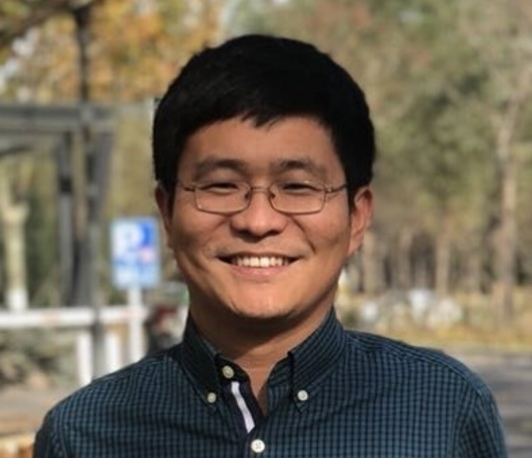Multichannel Ultra-low Field Magnetic Resonance System and Applications Based on Low-temperature Superconducting Quantum Magnetic Sensors
- Date: Jun 20, 2025
- Time: 11:00 AM - 12:00 PM (Local Time Germany)
- Speaker: Dr. Hui Dong
- China Academy of Engineering Physics, Graduate School of Chinese Academy of Engineering Physics
- Location: Max-Planck-Ring 11 (ground floor)
- Room: Room 0.A.20 + Zoom
- Host: Dr. Klaus Scheffler
- Contact: kai.buckenmaier@tuebingen.mpg.de

Abstract: Ultralow-field (ULF) NMR/MRI systems operating at magnetic fields below millitesla (frequencies below 0.04 MHz for 1H nuclei) offer several advantages, including a simple structure design, cost-effectiveness, high compatibility, and ease of integration with multi-physical fields. Notably, ULF NMR/MRI exhibits enhanced sensitivity to slow hydrodynamic processes (on the order of 10 μs), making it particularly beneficial for the research on confined water transport phenomena and the diagnosis of diseases such as stroke. However, ULF NMR/MRI systems face significant challenges due to their magnetic field strength being four orders of magnitude lower than that of conventional high-field systems, resulting in inherently poor signal-to-noise ratios (SNR). To overcome this limitation, low-temperature superconducting quantum interference devices (SQUIDs) with sensitivities as high as 10-15 T can be employed in ULF NMR/MRI to improve signal detection. We have successfully developed China's first prototype of an ULF NMR/MRI system based on multi-channel SQUIDs and investigated the dynamics of interfacial hydrated water in nanomaterials by introducing light source. In the field of biomedical imaging, we applied compressed sensing and deep learning methodologies to achieve a fourfold imaging acceleration, reduce image noise, and successfully reconstruct 3D human brain images. These advancements provide a solid foundation for further exploration and development of ULF NMR/MRI applications in biomedicine, materials science, and chemistry.
Refs:[1] Sensors & Actuators: B. Chemical 380 (2023) 133389
[2] Nature Communications 15 (2024) 6634
[3] IEEE Transactions on Biomedical Engineering 72 (2025) 655-663
Bio: Dr. Hui Dong's lab is interested in exploring the dynamics of low dimensional artificial and biological system. The research focus on the foundamental theoretical questions related to energy conversion as well as applications in biological systems. Our topics are generally divided into three parts:
1. Quantum thermodynamics: on the entropy production, quantum heat engine optimazation, et.al
2. Design principal in lightharvesting systems.
3. Ultrafast lab: We intend to develop spectroscopy methods with quantum feature of light.
Lab's webpage: https://site.gscaep.ac.cn/ftp/hdong/index.html
Access to the meeting: Zoom Link